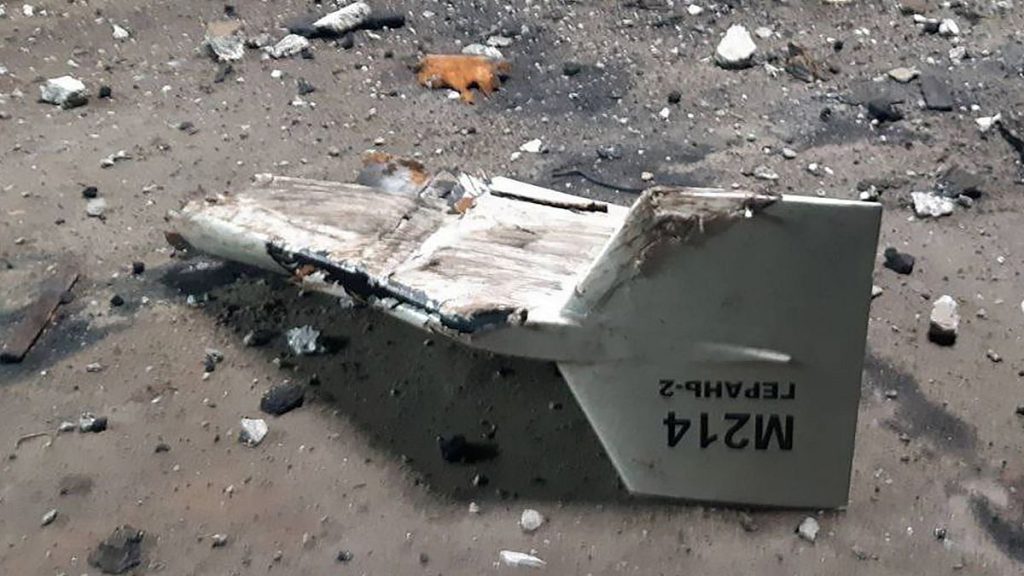At least six people were injured in a Russian strike on a Kharkiv apartment building, while two men were killed in Kherson. In Kharkiv, emergency crews rushed to the scene after a nine-storey apartment building was struck in the early hours of Monday. The city’s Mayor, Ihor Terekhov, reported that a 16-year-old girl was among the casualties, with three apartments on the upper floors being destroyed. Meanwhile, in Kherson, Governor Oleksandr Prokudin revealed that an elderly man was killed by explosives dropped by a drone, and another man died from artillery fire. Additionally, Russia’s Ministry of Defence claimed to have shot down 21 Ukrainian drones targeting various regions.
The aftermath of the Russian strikes in Ukraine has drawn international attention, coinciding with political events in other countries. Following Bulgaria’s parliamentary election, the centre-right GERB party emerged as the winner, with the pro-Russia party, Vazrazhdane, receiving a weaker result than predicted. The far-right party has made demands for Sofia to lift sanctions against Russia, stop supporting Ukraine, and hold a referendum on NATO membership. However, it remains isolated in parliament, with potential future partnerships uncertain. The Lithuanian Social Democratic Party announced plans to increase defence spending to at least 3.5% of GDP, reflecting growing concerns over Russian intentions in the Baltic region.
In the United States, Republican vice-presidential nominee JD Vance weighed in on the tensions with Russia, stating that while Moscow is an adversary of the US, treating the Kremlin solely as an enemy may be counterproductive. Vance emphasized the Trump administration’s commitment to NATO, highlighting the alliance as crucial in deterring further Russian aggression in Europe. His remarks came during interviews on Sunday talk shows, just days before the upcoming election. Vance’s comments underscore the complexity of managing the relationship with Russia, emphasizing the need for a nuanced approach that balances deterrence with dialogue.
The situation in Ukraine continues to escalate, with reports of drone attacks causing casualties and damage in various regions. In the Voronezh region, an industrial facility caught fire after a drone attack, leaving one person injured. Two explosions near an ethanol plant in Krasnoye also raised concerns, although these reports have not been independently confirmed. The ongoing conflict highlights the impact of modern warfare tactics, such as drone strikes, on civilian populations and critical infrastructure. The evolving nature of the conflict underscores the challenges faced by both Ukrainian forces and international efforts to address the crisis diplomatically.
The global response to the conflict in Ukraine reflects broader geopolitical tensions and alliances, with countries like Bulgaria and Lithuania making strategic decisions in response to Russian actions. In Bulgaria, the victory of the centre-right GERB party signals continuity in the country’s pro-Western stance, despite challenges posed by pro-Russia factions. Lithuania’s commitment to increased defence spending underscores the region’s concerns over Russian aggression and the need for a strong deterrent. The United States, through figures like JD Vance, navigates a delicate balance between recognizing Russia as an adversary and engaging in dialogue to address shared challenges.
As the conflict in Ukraine unfolds, the international community grapples with how best to respond to Russian aggression and support Ukrainian efforts to defend their sovereignty. The complex interplay of political, military, and diplomatic factors underscores the need for coordinated action and a clear stance against further escalation of hostilities. While dialogue and diplomacy remain essential components of resolving the crisis, the situation on the ground demands swift and decisive support for civilians affected by the conflict. As countries like Bulgaria, Lithuania, and the United States navigate their responses to the crisis, the evolving dynamics of the conflict underscore the urgent need for international solidarity and cooperation in addressing the challenges posed by Russian actions in Ukraine and beyond.













